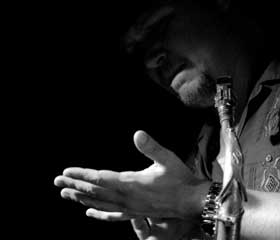Jazz Music, Jazz Club, Jazz Label: Cory Weeds Interview - Part 2Cory Weeds is helping to keep the west coast jazz scene sizzling with his jazz club and label.By Jim Dupuis Jazz Music, Jazz Club, Jazz Label: Cory Weeds Interview - Part 1
JD: The recording quality of The Cellar Live CDs is very good. I particularly like the way that you get the sound of the rhythm section, the bass and the drums to come through. A lot of other recordings have these sounds in the background, even if these people are leading the band. I’ve always thought that this is unfair. You manage to bring these sounds up equally. Is this planned, or what’s the deal? It’s something I enjoy about The Cellar Live recordings. CW: Thank you. One of the things that I have been learning throughout this process is that when you are in a studio recording, for example Jodi Proznick’s record you have a lot more control than with a live recording. For her record we have the bass a little higher because she is the feature. It’s way easier to do that when you are in the studio because she’s in an isolation booth—meaning that there is nothing else going into her microphone except bass. She’s in a room and it’s closed off so you get this really big, beautiful, round bass sound. When you are at the club you have anywhere between eight and fifteen microphones up and you have a lot of things going into the bass mike, so it’s really hard to get a nice isolated bass sound because you are getting sounds from so many other places. JD: I really did enjoy the way it was done on the Jody Proznick CD (Foundations) and the October Trio’s. That band seems to be a real collective and all three are given equal prominence and the sax doesn’t take over, like one might suspect. The sax is usually the main instrument and I really picked that out. I like to hear all of the band—somewhat equally—at certain times. It’s done really well. It’s always a musician mixing our records, like Brad Turner and Chris Gestrin. Brad and Chris get the nuances that somebody who is just strictly a recording engineer might not get. You know, the really subtle nuances and the idiosyncrasies of the instrument—Brad and Chris hear that JD: Yes, it is, definitely. Cory can you give us a little scoop. Who’s coming up next on Cellar Live? CW: Yes, for sure. We just released a whack of records. We just released a live record with a group called The Night Crawlers, which is kind of a funky organ band with Jesse Cahill, the drummer, as the leader. He was also on Jodi’s (Proznick) record, myself on alto, Ian Hendrickson-Smith, who’s a fantastic saxophonist from New York City, Chris Gestrin on organ and Dave Sikula on guitar. Ian Hendrickson-Smith, I just released a record from him. I licensed it. It was recorded live at the Fat Cat Jazz Club in New York City. It’s a great record. Then we just released a two CD compilation featuring the best of the first five years (of Cellar Live). But as far as what’s upcoming, we have a PJ Perry and Campbell Ryga date—Two Altos … JD: Really? Ah… CW: Yes, with Ross Taggart, Terry Clarke and Neil Swainson. JD: I can’t wait. CW: We’re hoping to get that out. We always record. We don’t know if and how and when we can put it out, but we always record and we have it in the can. I just sent PJ (Perry) the tracks and he’s really excited about it and we’re hoping that it’s going to come out. I’ve licensed another album from another great alto player out of New York named Mike DiRubbo, who did a live record at the Cattano Club in New York City. The reason that I’m excited about this is that Mike’s a great player, but it also features Harold Mayburn, who happens to be one of my favourite pianists. He is also another one of those, upper echelon, legendary, figures. It’s going to be a coup for the label! We’re recording another record with Bruno Hubert and his trio. That’s happening live at the club on February 20 and March 1st. We haven’t nailed anything down yet, but all the parties are interested and we just have to get the date. The Joel Haynes Trio, with great drummer Joel Haynes from Toronto, Jody Proznick on bass, Tilden Webb on piano and we want to bring in special guest, Peter Bernstein on guitar from New York City. We’re working on getting that happening. Other than that, I’ve been threatening to do my own thing. I’ve recorded, of course on the label with Crash and The Dr. (Lonnie Smith) and the Night Crawlers, but those aren’t jazz records per se. They are more funk oriented stuff. So I’m hoping that this year I get my own solo record out. I have some ideas, but nothing is set in stone yet. JD: Someone told me that your dad is either a musician or a music educator. Is that that true? CW: He's a musician. He's not an educator. He's somebody that got started very late in the game. He's not a professional, meaning that he doesn't rely on music for his income, but he's a fantastic guitar player and I'm really, really lucky that I have a very supportive family. My parents put me in piano and of course I fought it all the way. I kind of did my own thing JD: It sure sounds like it. I'm going to go way, way back. This is an unfair question. What is your first music memory. What is the first time that you can remember that you heard music in your life? CW: That's a good question. I know that the first thing that hit me jazz wise, I remember my dad played me a Wes Montgomery version of a tune called "Sundown" and that's what kind of made me go, "Oh, that's cool I like that." JD: (laughs) Wes will do that. CW: Ya, he did it then and he's done it continuously over my career. But definitely that Suzuki piano stuff. I can hear it now in my head--lying in my bed going, "What the heck is this stuff?" JD: Ok Cory, how did you get from piano to sax? CW: Well I shouldn’t say I wasn’t a good piano player, but I didn’t have a very nice touch. I just wasn’t the most sensitive of pianists. I had a cousin who I really looked up to as I was growing up. I just thought he was the coolest guy ever and he played the saxophone and I wanted to be like him, so bad. I remember we went to a Chicago concert and we went to the Julian Lennon concert in 1986. I remember seeing the saxophone players for both of those guys and I was totally blown away. I think my first saxophone teacher took me to see David Sanborn and again I was totally blown away. So it was a combination of those things and I really wanted to be like my cousin. I just sort of stuck with it. I’m far from a virtuoso and far from a gifted musician, but the saxophone came really easy to me. I often get asked, “Was it hard on your parents, hearing you squeak and squawk?” You know what, I never did. It just came very easy to me, so. JD: Cory, as a sax player, other than your cousin, who are your influences? CW: Do you mean like other musical influences? JD: Yes. CW: Well my dad's a guitar player, so my favourite musician hands down is Wes Montgomery. I grew up sort of knowing more about the guitar than I did about the saxophone. I've got more Wes (Montgomery) records than any one sax player. I had a saxophone teacher, who is no longer with us named Wayne Diggins, who was a real inspiration to me. I draw a lot of inspiration from the local players, you know, guys like Oliver Gannon, again a guitarist. Campbell Ryga was a big influence; PJ Perry, I loved. You know, I was lucky to see some stuff, early on in my days. I saw Scott Hamilton. It was one of the first concerts I saw. That's kind of weird enough--it's come full circle because it kind of came back to him. But Lou Donaldson would definitely be. He's probably my biggest hero and I got to share the stage with him yesterday for a tune and I'm still in shock. JD: Ok, how old would Lou Donaldson be? CW: Lou Donaldson is exactly 80 years old. JD: I thought around eighty if he was still alive. I wasn't sure that he was. CW: You know, a lot of people didn't know. He's semi-retired and it was quite an accomplishment to get him out here. I've been bugging him for six years and he admiitedly said he came out here just to get me off his back. JD: You are associated with a number of your own bands, Crash, being one of them, do you still do any composing? CW: I've never been a huge writer for a number of reasons, although I did a lot of writing for Crash and Crash is on a bit of a hiatus now because I want to concentrate on a number of other things. I have so much fun exploring the obscure tunes by other people. Writing takes a lot of patience and a lot of JD: What about time? You only have five other jobs (laughs). CW: I don't have a lot of time and I'm getting married. I'm juggling a lot of balls, so ... The Club: The Label: |
Reviews
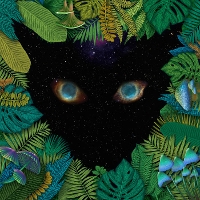
Mngwa
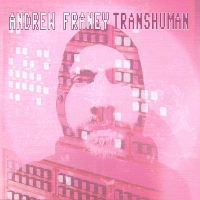
Andrew Franey
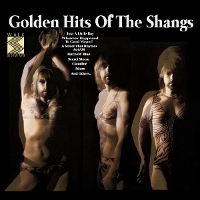
The Shangs

Alex Cuba

Tri Nguyen
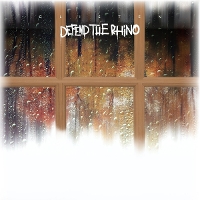
Defend The Rhino

Talltale
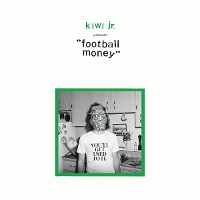
Kiwi Jr.
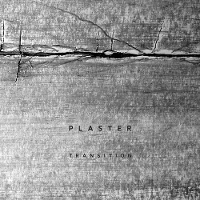
Plaster
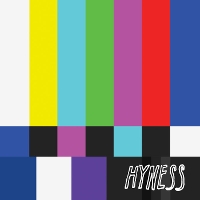
Hyness
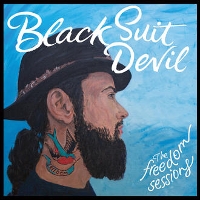
Black Suit Devil
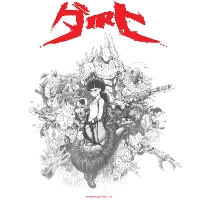
Yamantaka // Sonic Titan
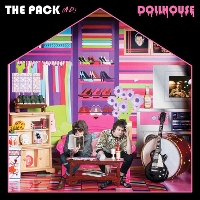
The Pack A.D.
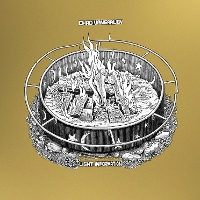
Chad VanGaalen

Potengowski Anna Friederike
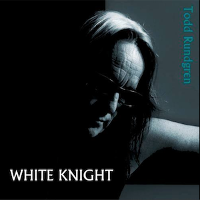
Todd Rundgren

Old 97's
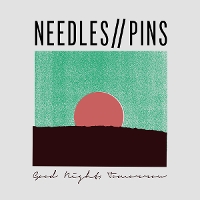
Needles//Pins


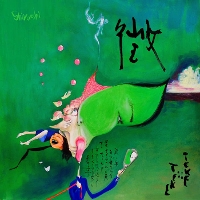
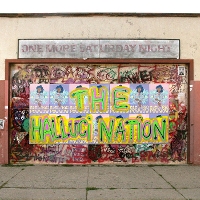
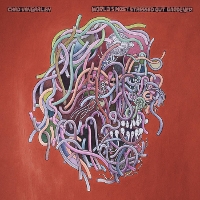
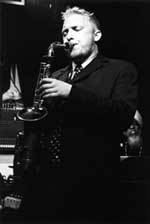
 I just thought that this room was so perfect and if I didn't jump on it right away, it wasn't going to happen.
I just thought that this room was so perfect and if I didn't jump on it right away, it wasn't going to happen. 
